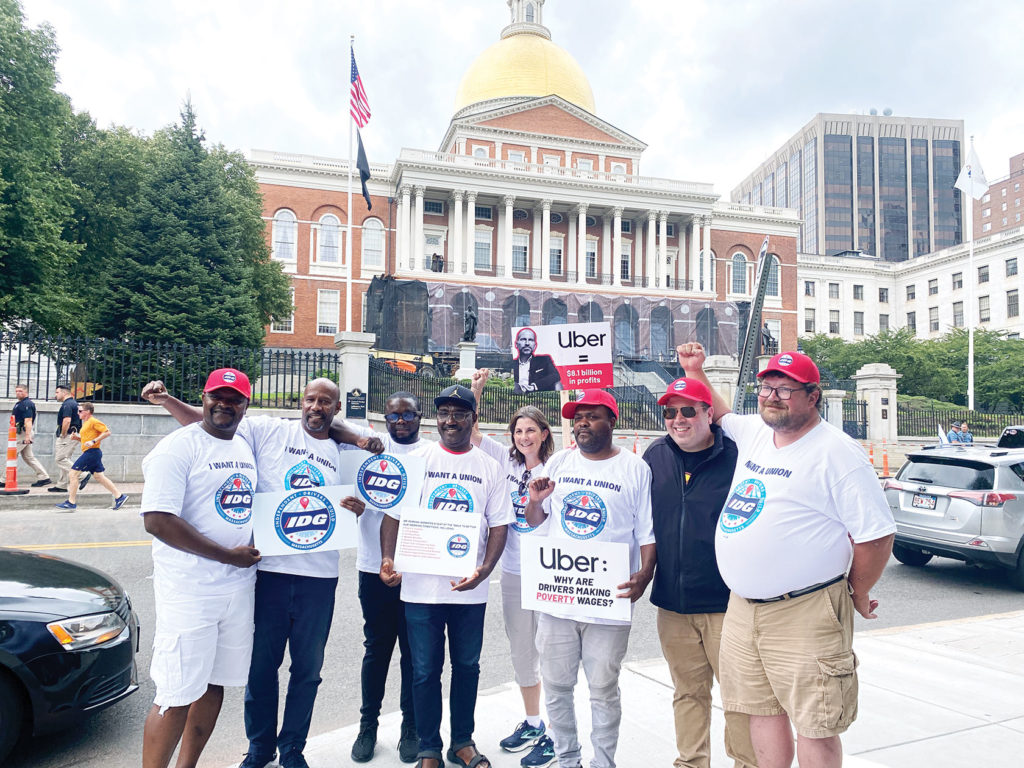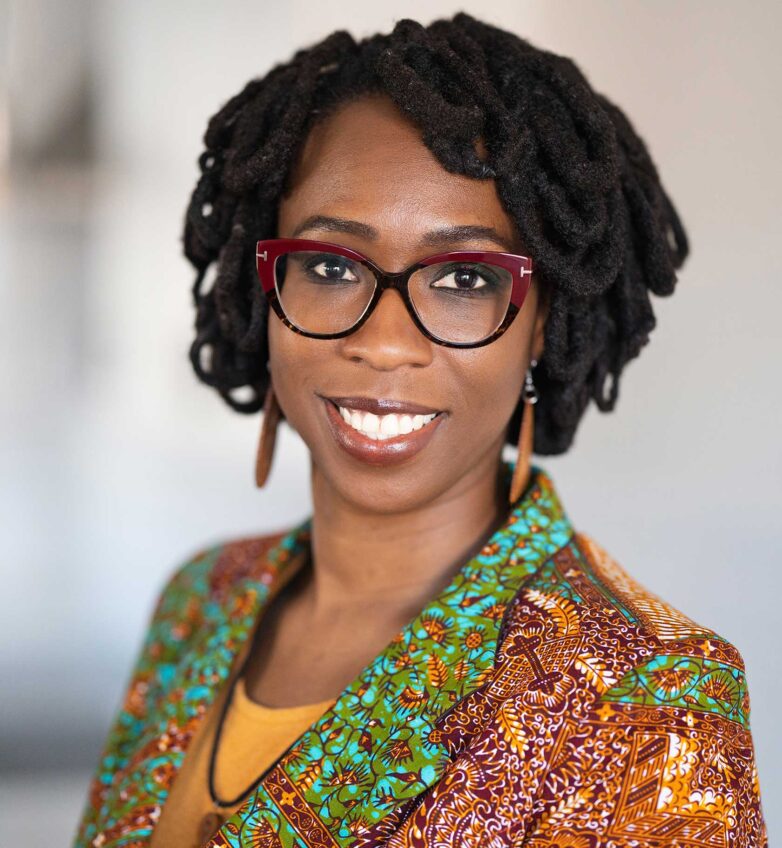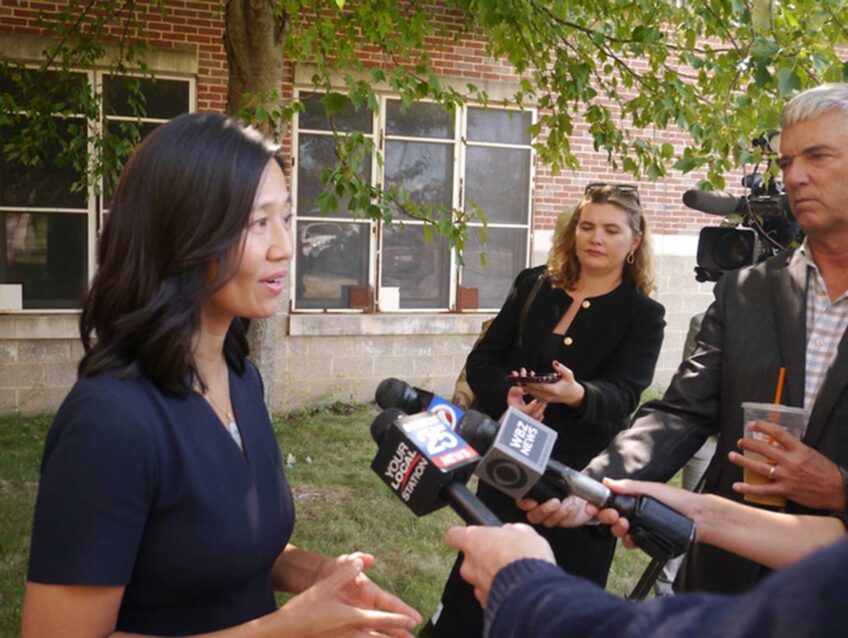
On Wednesday, Aug. 17, a group of rideshare and delivery drivers drove a “protest caravan” from Allston to the Massachusetts State House to demand union rights and higher wages. After months of a contentious back and forth over a ballot measure that would classify drivers as independent contractors, advocates hope to call attention back to their fight for job safety and security.
Drivers gathered at noon next to the parking lot behind the Allston Star Market and made their way to the Statehouse, where cars bearing signs that read “Drivers need a union now” and “Uber profits, drivers suffer” honked and blocked traffic on a stretch of Beacon Street.
The action was led by members of the Massachusetts Independent Drivers Guild (IDG), a branch of the national group organizing on behalf of app-based drivers and was backed by union leaders from the International Association of Machinists (IAM) and SEIU 32BJ.
During the rally, drivers and organizers juxtaposed app-based companies’ high revenues with the struggles of drivers, including work-related expenses and other living costs such as health insurance and housing.
“Uber announced record revenue of 8.1 billion dollars for Q2, beating estimates by almost a billion dollars,” IDG representatives said in a statement. “At the same time, app workers are suffering, often making below minimum wage after expenses like record-high gas prices.”
Uber Eats driver Kevin Murphy of Foxborough led the calls in front of the Statehouse Wednesday, outlining his own struggle to protect his health and safety while relying on driving for his primary income.
“I work long weeks to barely break even after paying gas and bills. We’re struggling to survive with our take-home pay, while Uber is banking record amounts of money,” Murphy said. “We need a union to hold Uber accountable and negotiate higher pay for us drivers, who are doing all the work and taking all the risks!”
Tens of thousands of workers in Massachusetts drive for Uber, Lyft, DoorDash, and other app-based rideshare and delivery platforms — completing tens of millions of trips annually.
IAM says it has organized more than 3,000 Uber and Lyft drivers into a statewide drivers’ guild in Massachusetts, and more than 250,000 drivers into guild formations across Massachusetts, Connecticut, New York, New Jersey and Illinois.
Paul Mbimeh, originally from Cameroon and now living in Brockton, joined the IDG over a year ago after struggling with low wages he is relying on to eventually move his family to the U.S. Mbimeh is a PhD student in linguistics, a soccer coach and a high school French teacher, on top of being an app-based driver.
“I have a wife and four kids,” he told the Banner Wednesday. “They’re coming over to the United States to join me. How am I going to put food on the table if the things stay the way they are?”
On top of increasing wages, Mbimeh said it’s also important for tech companies to provide better transparency in wages. Often, app-based drivers make varying sums for the same drives, depending on the day and the app-set rate.
“I get so much, and the next time I do the same and I get half of what I got before. You see it’s a mystery,” he said. “We’re here to break the mystery. We need a paradigm shift.”
Additionally, Mbimeh and IDG are demanding job security — the ability to fight back against app deactivations — and benefits like health care and drivers’ insurance.
Many of the issues drivers are facing were made public over the last year as tech companies pushed to include a ballot measure on the Massachusetts ballot this fall that would classify drivers as independent contractors.
In June, the ballot measure was thrown out by the state Supreme Judicial Court, which ruled against the tech companies on a technicality based on language.
Additionally, state lawmakers have pushed for their own legislation to support drivers, including a 2021 bill to give drivers “the immediate ability to bargain for improvements to wages, benefits, job safety, and training, and to have a process to grieve unjust or biased deactivation practices that too often cost Bay State drivers their livelihoods.”
That bill died this summer after it failed to make it out of the legislature by its Aug. 1 session deadline.
Currently, the last hope for legal action on behalf of IDG and its drivers is a 2020 lawsuit filed by Attorney General Maura Healey, who sued the app-based companies for violating Massachusetts labor laws. Healey’s suit claims the apps have “misclassified” drivers as contractors in order to cut costs.
It’s unclear when that lawsuit might conclude.




